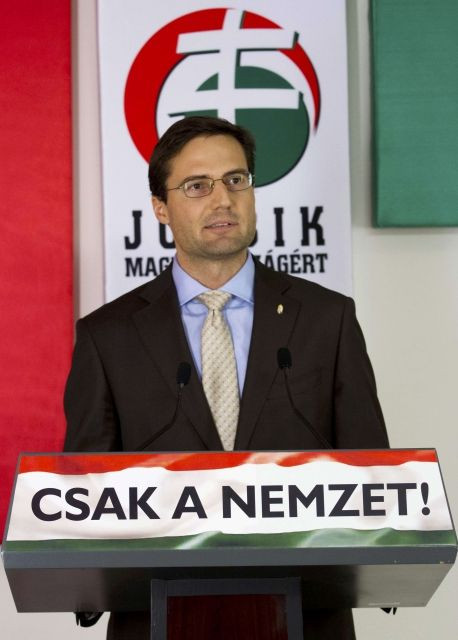Jews Pose 'Security Risk' To Hungary, Nationalist MP Says

A leading member of a Hungarian nationalist party has drawn strong criticism from the government for saying officials of Jewish origin presented a potential “security risk” to the country.
Marton Gyongyosi, a member of parliament and deputy head of the far-right Jobbik party, said during a discussion of the Gaza conflict that it was time to “assess how many MPs and government members are of Jewish origin and who presents a national security risk to Hungary," the BBC reported.
The Hungarian government has condemned Gyongyosi’s comments, with a spokesman saying Tuesday that it was taking "the strictest possible action against every form of racism and anti-Semitic behavior," adding that it was doing "everything in order to ensure that malicious voices incompatible with European norms are driven back," according to the BBC.
Gyongyosi responded to the criticism, saying that his comments only applied to people with dual Israeli citizenship.
"Jobbik believes that the national security risk assessment ... is important exclusively in the case of dual citizens," Gyongyosi said in written statement, the Associated Press reported. "I apologize to our Jewish compatriots for my equivocal statement."
He then added: "Hungary should not be afraid of Jobbik but of Zionist Israel and those serving it also from here."
Jobbik, which holds 47 out of 386 in parliament -- the third largest faction -- has been labeled fascist, xenophobic, anti-Semitic, racist and homophobic by its opponents, which the party has denied.
Gyongyosi has criticized the government’s support of Israel, most recently highlighted by Israeli military operations in Gaza.
Jobbik supporters are known for displaying insignia used by fascists aligned with Nazi Germany during World War II. Hungary’s pre-war Jewish population was around 825,000. The government passed successively harsher anti-Semitic measures in the 1930s and '40s and deported some 550,000 of its Jewish citizens to the gas chambers of Auschwitz in 1944, according to Humanitas International.
The current Jewish population in Hungary is estimated at around 100,000, about 1 percent of the total.
Gusztav Zoltai, a Holocaust survivor and prominent leader in Hungary’s Jewish community, expressed dismay at Gyongyosi’s comments, but told the AP that was encouraged by support from most Hungarian citizens.
"Much of the country is made up of decent people who protest together with us against these things," Zoltai said.
Jobbik, however, has gained wider support, growing from zero seats in parliament in the 2006 election to 47 in 2010.
© Copyright IBTimes 2024. All rights reserved.




















